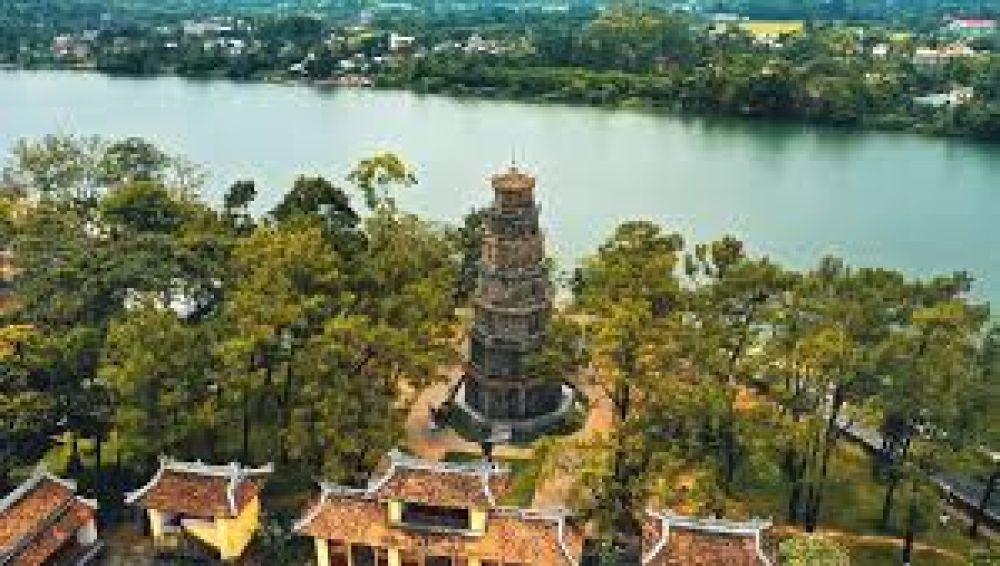

Thien Mu Pagoda, also known as the Pagoda of the Celestial Lady, is a historic temple in the city of Hue, Vietnam. Situated on the north bank of the Perfume River, it is one of the oldest and most iconic religious structures in the country, with a history dating back to 1601. Its seven-story octagonal tower, Phuoc Duyen Tower, has become synonymous with the city and is a symbol of Hue's religious and cultural heritage.
The pagoda was built under the orders of Nguyen Hoang, the governor of Thuan Hoa province, and has since been associated with many important historical events in Vietnam. Over the centuries, Thien Mu Pagoda has been expanded and renovated multiple times, yet it still retains its serene beauty and historical architecture. It is not only a place of worship but also a reflection of the profound spiritual life of the Vietnamese people.
Tourism at Thien Mu Pagoda began to flourish when Hue became a part of the UNESCO World Heritage Site in 1993, due to the pagoda's significance within the Complex of Hue Monuments. Visitors from all over the world come to witness the historical architecture, enjoy panoramic views of the Perfume River, and immerse themselves in the spiritual atmosphere of the pagoda.
Today, Thien Mu Pagoda stands as a testament to the ancient imperial city of Hue and continues to attract visitors with its unique blend of historical significance, spiritual symbolism, and natural beauty. The latest tourism trends reflect a growing interest in cultural and heritage tourism, where travelers seek to experience and learn about the history, local customs, and traditional values of the places they visit.
Eco-friendly tourism is also gaining traction, with visitors becoming more environmentally conscious and looking for ways to minimize their impact during their travels. There is an increasing preference for experiences that are not only culturally enriching but also sustainable.
Furthermore, experiential travel is on the rise, and visitors to Thien Mu Pagoda often look to complement their visit with other culturally immersive activities, such as taking a boat trip on the Perfume River, attending traditional music performances, or exploring the local cuisine of Hue.
When planning a visit to Thien Mu Pagoda, tourists should consider the local climate and choose to visit during the cooler, drier months from November to April for the best experience. Respectful attire is recommended when entering religious sites, and visitors should be prepared to remove their shoes upon entering certain areas of the pagoda.
The allure of Thien Mu Pagoda in Hue, Vietnam, remains unchanged as it continues to be an essential destination for both its spiritual significance and historical value. As an embodiment of Vietnam's rich cultural tapestry, Thien Mu Pagoda is not only a relic of the past but also an ever-present part of the living history of Hue, welcoming tourists from all walks of life to experience its timeless beauty.